For many considering an extended stay in Southeast
Asia—beyond the typical two-week vacation—the choice often narrows down to Bali
or Thailand. Both destinations offer a long list of advantages, but also
come with a few notable drawbacks. We’ve tried to gather, compare, and weigh
them all. So which one comes out on top?
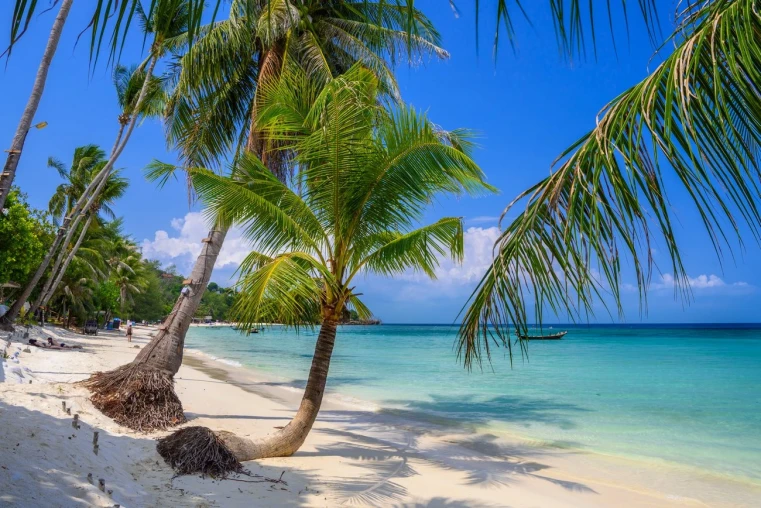
To begin with, it's important to acknowledge that both
Thailand and Bali are incredibly diverse. However, there’s a key
difference: while Bali, despite the unique character of each region, still
retains a strong sense of cultural and stylistic unity, Thailand’s
provinces and islands can feel as different as night and day.
Perhaps the most accurate comparison isn't between
Bali and all of Thailand, but rather Bali and Koh Phangan. The latter is
often referred to as the "Thai Bali" for good reason. Despite their
size difference—Koh Phangan is about 140 square kilometers, while Bali is
roughly 5,800 square kilometers (over 40 times larger)—the atmosphere,
pace of life, and even the expat communities they attract share
remarkable similarities.
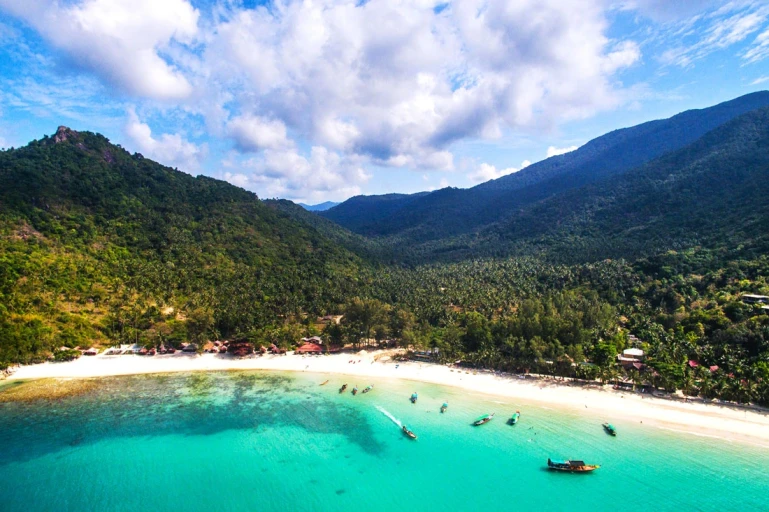
In this article, we’ll dive into a detailed comparison of Bali and Koh Phangan, exploring everything from accommodation and community to food, transportation, work culture, and more—to help you decide which island might be the better fit for your lifestyle.
Accommodation
When it comes to housing, guesthouses—a
common and affordable option in other parts of Southeast Asia—are almost
non-existent on Koh Phangan. Instead, the most common type of accommodation
is standalone houses with private kitchens. Some even come with a pool,
although that’s more the exception than the rule. Prices for these start
around $700 per month.
If you're on a tighter budget, you can find very
basic "Thai-style" huts for $200–$300 per month. These are
typically small, dark, and have limited amenities—often no air conditioning and
no cleaning services (you’re responsible for everything yourself).
Recently, condominium-style apartments—similar
to those found in Samui or Phuket—have started popping up on Koh
Phangan. However, they come with a hefty price tag, typically $1,500–$2,000
per month.
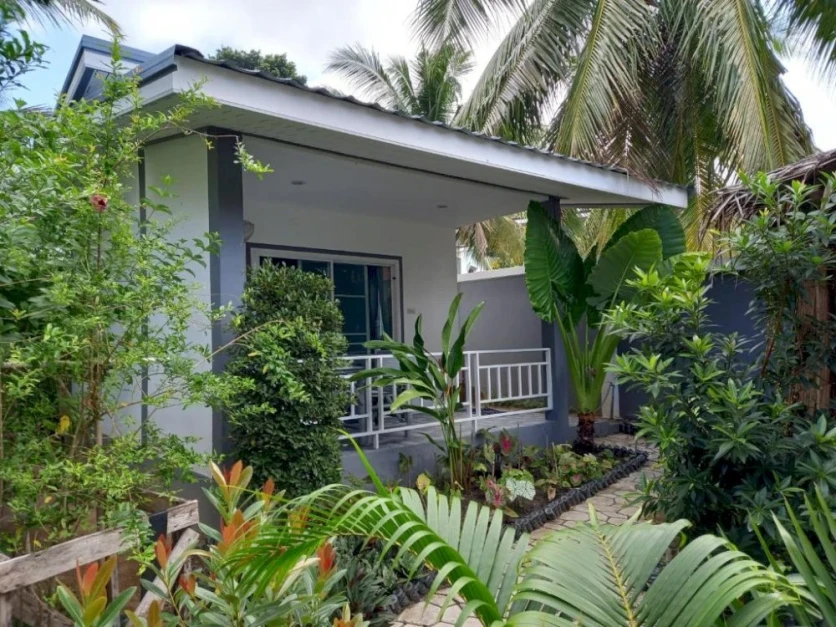
As for affordable, modern co-living spaces—with
shared kitchens, pools, and regular cleaning services (the kind of places where
many expats live in Bali)—they’re still rare here. You might find a few, but
they’re more of a novelty than the norm.
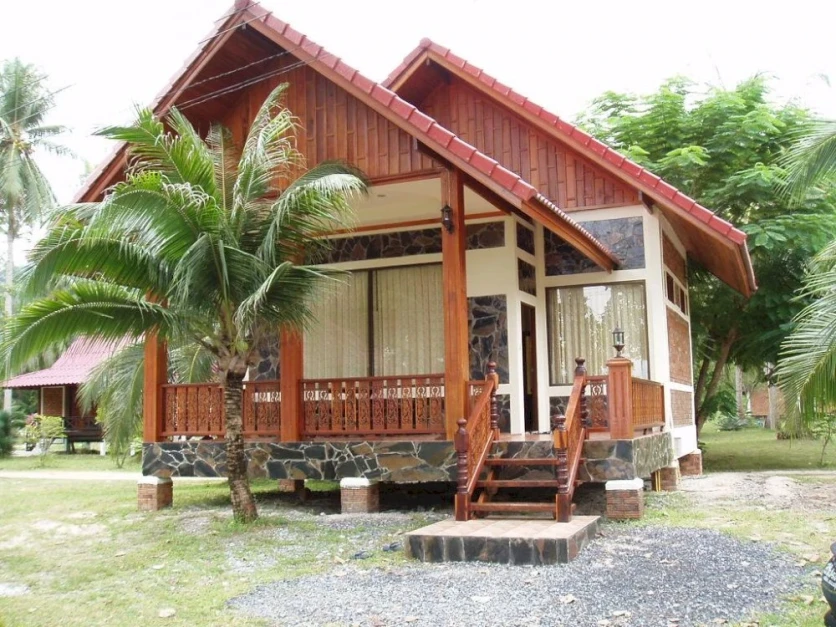
Of course, Koh Phangan does have its share of luxury
white villas with infinity pools, but those are limited and hard to come
by. In other words, if you're hoping to showcase a "luxury lifestyle"
on social media, it’s a bit trickier to pull off here.
In this regard, Bali clearly has the upper hand.
Whether you're on a shoestring budget or looking for something high-end, finding
stylish, well-priced accommodation—even in popular areas like Canggu—is
much easier.
Cafes, Restaurants, Street Food
If you're dreaming of avocado toast and
luxurious smoothie bowls for breakfast, Koh Phangan might not quite live up
to the image. While there are cafés offering European cuisine, the
island is a far cry from Bali hotspots like Canggu, Ubud, or even Bukit
when it comes to variety and atmosphere.
Due to the island's small size, the number of quality
Western-style eateries is limited—you could almost count them on one hand.
So don’t expect to be café-hopping daily from one trendy brunch spot to
the next.
Interestingly, Western food on Koh Phangan is
often more expensive than in Bali. A simple pizza can cost $13–15,
and that's usually the price you see on promotional menus. While the seafood
is delicious, it often comes with a hefty bill. You'll find a few
international options—Italian, Brazilian, Indian—but the selection is
limited.
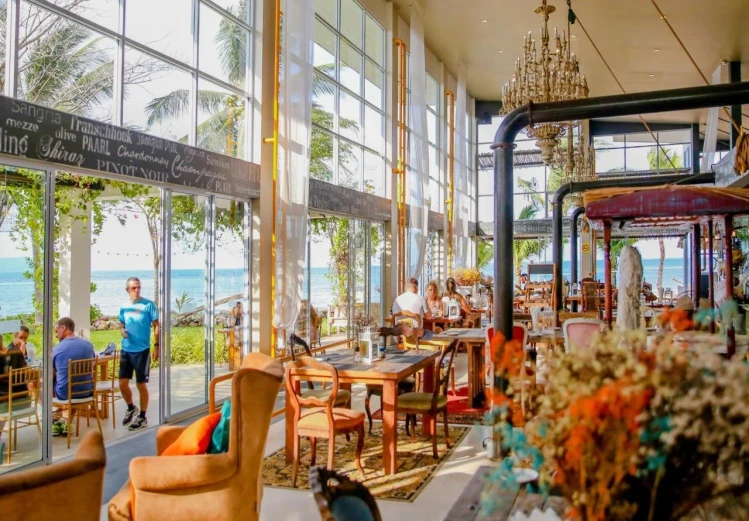
Where Koh Phangan Shines: Food Courts & Street Food
Here’s where Thailand—and especially Koh
Phangan—outshines Bali: food courts and street food. For some
reason, this format hasn’t caught on in Indonesia. In Bali, food courts are
often small, very local, and lacking in variety. If you’re lucky, you might
find nasi campur; otherwise, the choices are often limited to satay,
chicken with rice, or bakso. While trying local food can be fun, it tends
to become repetitive if you’re living there long-term.
In contrast, Thai street food is globally
praised, and even on a small island like Koh Phangan, it lives up to the
hype. There are several well-organized food courts, offering:
- Papaya salad, tom yum, and a wide selection of Thai curries
- Freshly made fruit shakes
- Build-your-own salad bowls for just $3–4
- Full meals, including a smoothie and mango sticky rice for dessert, for around $5
- And yes, it's even possible to survive on $2 a day—though that’s more of an extreme budget

Final Thoughts
If you're looking for stylish, wholesome cafés
with Instagram-worthy food, Koh Phangan may disappoint—or at the
very least, strain your budget. In that regard, Bali is still
unmatched, offering variety, affordability, and aesthetic appeal in one
package.
However, if your vibe is flavor-packed Thai
street food, curries, tom yum, and pad Thai, then the so-called "Thai
Bali" might be the perfect culinary playground.
Getting Around: Scooters, Cars, Taxis
Getting around Koh Phangan isn’t as straightforward
as it may seem. On the one hand, traffic is a dream compared to Bali—empty,
smooth roads, and zero traffic jams. Riding a scooter through the
island’s scenic hills and coastal routes can feel like pure freedom. The views
are breathtaking, and the experience is something many Bali residents long
for.
However, that freedom comes with a catch: you’ll
need a scooter to truly enjoy it. Without one, your movement is mostly limited
to your immediate area—especially if you're staying outside the island’s
central parts.
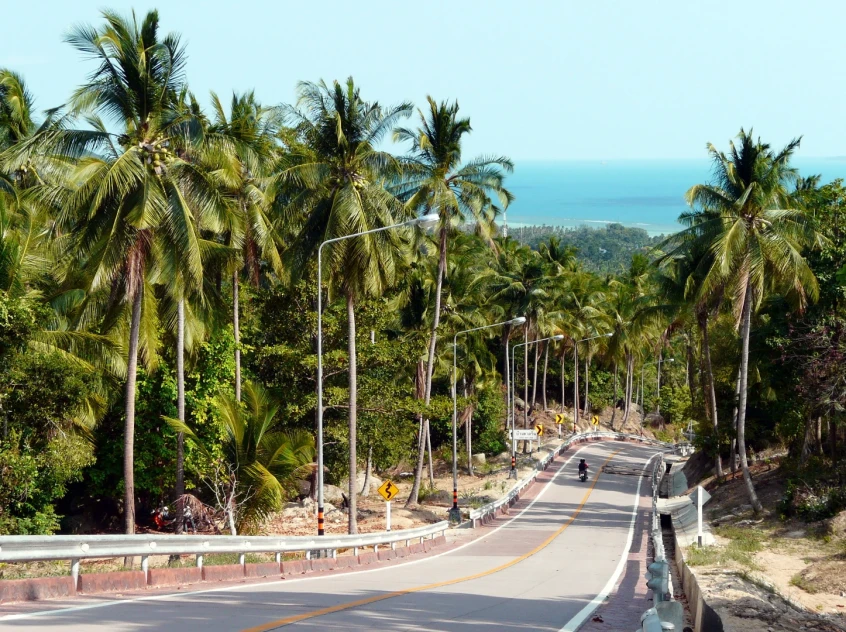
🚖 Taxis & Songthaews
- Taxis are hard to come by in many parts of the island and significantly more expensive than in Bali.
- The local shared transport—songthaews—are the main alternative. But using them takes some getting used to:
- You’ll need to learn where to wait,
- How to flag one down,
- And how to negotiate the price.
It’s not as convenient or spontaneous as grabbing a
Grab or Gojek in Bali.
Walking isn’t a great option either—the island
is hilly, and distances, while short on the map, can be time-consuming
and physically demanding.
So, those charming Gojek rides between Canggu
and Ubud? Just a memory here.
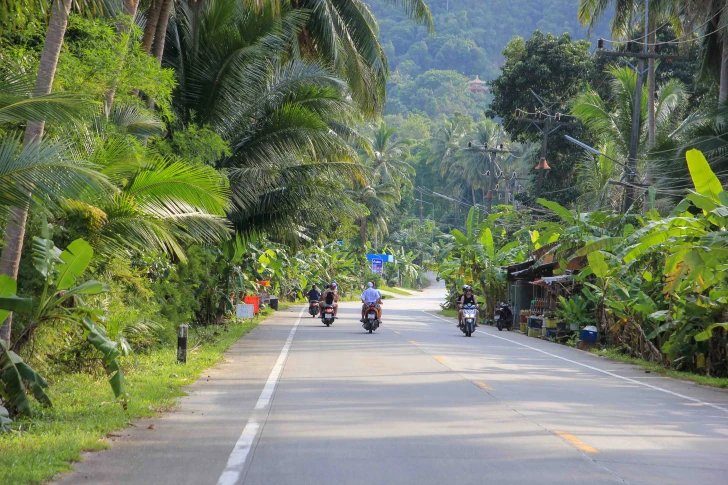
🛵 Scooter & Car Rentals
- Scooter rental on Koh Phangan is as easy and informal as it is in Bali.
- Most places don’t ask for a license (even though they should), and the process is quick.
- Some rental shops may ask for your passport as a deposit, but it's best to negotiate to leave a copy or offer a cash deposit instead.
- Police checks are rare, and you’ll rarely see expats stopped—even for not wearing helmets.
Rental prices for models like the Nmax or PCX
are comparable to Bali. However, if you’re looking for something a bit
more powerful or stylish—like a sport bike or custom ride—you might be
disappointed. High-end bikes are rare on this small Thai island.
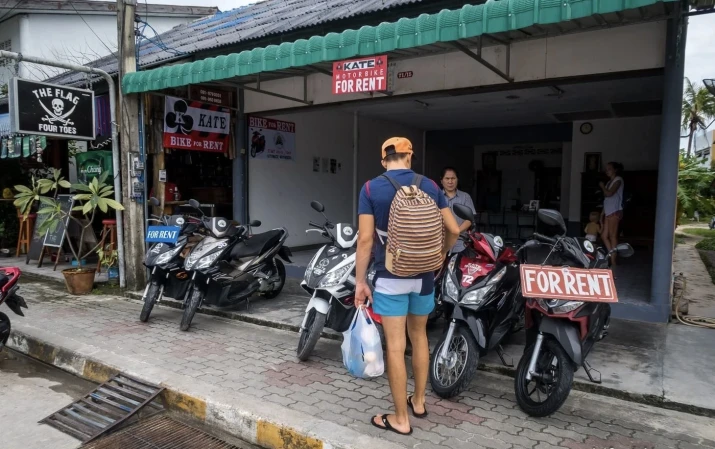
🚗 Renting a Car
Car rental is also available and slightly more
expensive than in Bali, but it can be a good option if you’re staying
longer or traveling with others.
In Summary
- ✅ Pros: Smooth roads, no traffic, stunning scenery, easy scooter rental
- ⚠️ Cons: Limited public transport, expensive taxis, few high-end vehicles, tough terrain if walking
If you're comfortable on two wheels, Koh Phangan
is paradise. But without a scooter, mobility becomes a real challenge.
Entertainment and Nightlife
When it comes to leisure and entertainment, Koh
Phangan lags behind Bali—and not just because Thailand doesn’t offer
surfing. In terms of waves, Bali is in a league of its own. But even
beyond the surf scene, Bali offers a much broader range of activities.
From bars and clubs to water parks,
cinemas, paragliding, and paintball, Bali caters to just about every kind
of traveler. You can go skydiving, dirt biking, hike volcanoes, attend art
exhibitions, or join a workshop on nearly any topic imaginable.
There are even durian ceremonies for those seeking the truly unique.
Bali today is an island where you can find something for every interest,
every day.
On Koh Phangan, the offerings are far more
limited. You won’t find shopping malls or big beach clubs. The island’s
entertainment scene is quieter and more niche.
However, things are slowly changing. Since the end of
lockdowns, Koh Phangan has seen a revival in its party scene. And no, we’re
not talking about the infamous Full Moon Party—which, for many expats,
is more of a downside than a draw. Once a month, the beach becomes a hotspot
for drunk (and not only drunk) backpackers, complete with cheesy
playlists and trash-strewn sand the next morning. Many locals and long-term
visitors would happily trade this so-called "legendary" party for
something a little more curated.
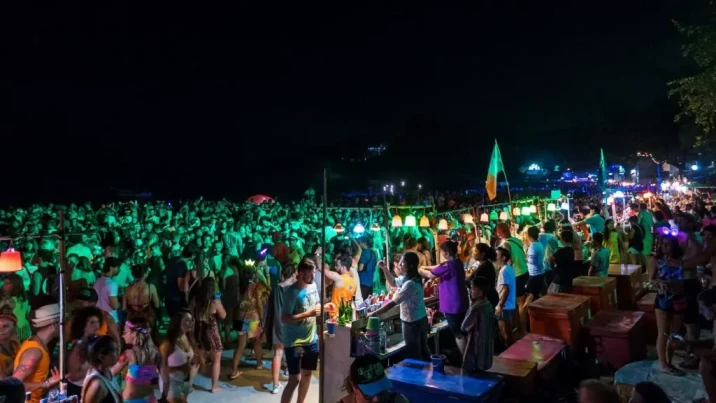
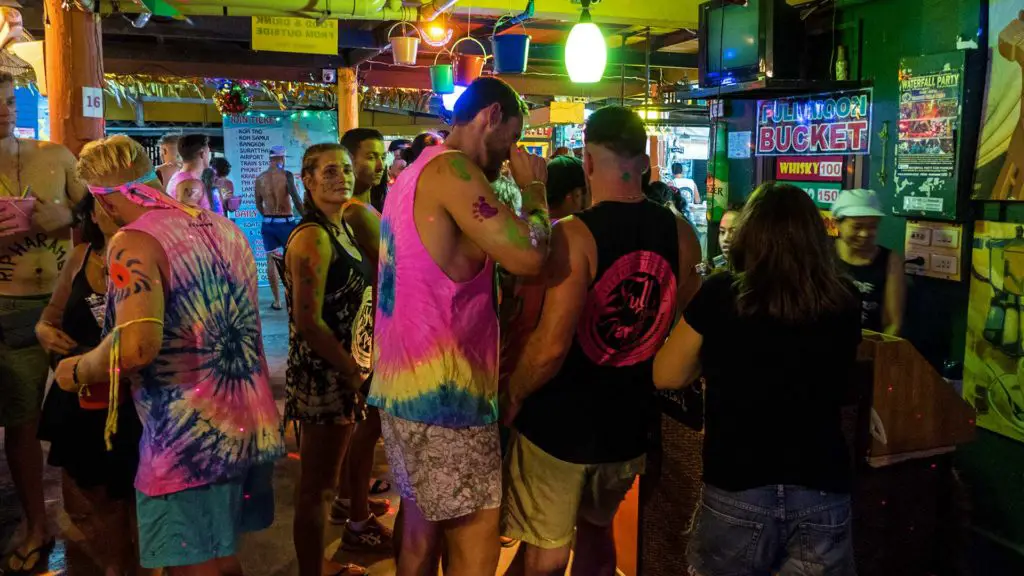


Fortunately, quality parties with great music
and talented DJs have become more common on the island—and not just on
weekends. On any given night, you can find stylish events and laid-back
gatherings that reflect the island’s growing creative community.
Children's Infrastructure
Bali offers a
wide range of international schools, making it a very comfortable
destination for families with children. From kindergartens to full academic
programs, options are plentiful and diverse, catering to different languages
and educational philosophies.
In comparison, Koh Phangan falls noticeably
behind in this area. While there are some private schools and
kindergartens, the number is limited. That said, the island does offer a spacious,
nature-rich environment, which many families appreciate.
Enrolling your child in a public school is
also possible, but it requires fluency in either Thai or English,
depending on the institution.
When it comes to extracurricular activities,
the options on Koh Phangan are quite narrow. Aside from Muay Thai, it
can be challenging to find clubs or classes for children—be it in arts, music,
sports, or other interests.
Sports, Yoga and Spa
When it comes to sports and physical activities,
both Bali and Koh Phangan offer a solid range of options. While Koh
Phangan is smaller and has fewer gyms, the ones available are generally
sufficient for the local and expat communities. You’ll also find tennis
courts, Muay Thai gyms, a football field, paddleboarding, kayaking, and
even wakeboarding—so if you’re motivated, you won’t be bored.
That said, Bali clearly leads when it comes to
the sports community. The island is home to countless sports groups,
meetups, and active chat communities. On top of that, you'll find volleyball,
basketball, paddle tennis, and more—all at affordable prices.
Tip: If you’re new to Bali and looking to connect,
start with BaliChat Fit-Sport—a popular group for sports enthusiasts.
Yoga Scene
Surprisingly, Koh Phangan holds its own in the
yoga world, offering nearly as many daily classes as Bali. While
there are fewer studios, the number is in line with the island’s size,
and it's still easy to find a session every single day. One reason for
this abundance is that Koh Phangan is more relaxed about yoga teacher
certifications, and many instructors freely promote their classes on social
media platforms.
Massage & Spa
Massage is widely available on Koh Phangan, with Thai massage parlors
on nearly every corner—which makes sense, given the location. However, most
options are basic street-style massages, and finding higher-end or
specialized services can be a challenge.
In contrast, Bali offers a rich variety of spa
experiences, from budget-friendly local spots to luxurious retreats
with stunning interiors, elaborate wellness ceremonies, and curated treatments.
Beauty Services
If you're looking for beauty treatments—like
nails, brows, or lashes—Bali is far superior. Areas like Canggu
and Seminyak are filled with high-end salons and beauty studios that
rival those in Europe or major international cities.
On Koh Phangan, however, it's a different
story. Quality beauty services are scarce, and it's hard to find salons
that meet Western standards in terms of technique, service, and hygiene.
Final Thoughts
- ✅ Bali wins in terms of community, variety, and high-end wellness options
- ✅ Koh Phangan is strong in yoga and basic fitness, but limited in spa and beauty services
- 🧘♀️ If you're a yoga lover who enjoys simplicity, Koh Phangan will suit you just fine
- 💅 But if you're into full-service wellness and beauty experiences, Bali is unmatched
Beaches & Ocean
When it comes to beaches and swimming, Koh
Phangan definitely has the edge—at least at first glance.
In Bali, swimming along the coastline can be
challenging due to strong waves and currents, with only a few swimmable
spots. In contrast, Koh Phangan’s beaches are calm and accessible,
making it easy to enjoy the water—even with children. And for such a
small island, it offers a surprising variety of beaches, each with its
own vibe.
Another perk on Koh Phangan: sunbeds are often
free at beachfront cafés. You can order just a single coconut, stay
all afternoon, and no one will hassle you. Compare that to Bali’s popular
beaches like Melasti or Dreamland, where paid sunbeds are
the norm.
So, if your idea of paradise involves lounging
on soft sand with a tranquil sea view, Koh Phangan is the place for you.
🏄♂️ But What About Surfing?
That’s the trade-off. Koh Phangan’s calm,
wave-free waters mean there's no surfing—which, for many Bali
lovers, is a dealbreaker. Bali remains unbeatable for surf culture and wave
action, which is a major part of its draw.
🌡️ Water Temperature
The sea in Thailand is warm—very warm. For
some, this is delightful; for others, it's a letdown. Don’t expect a refreshing
dip—stepping into the ocean often feels like stepping into a warm bath.
Whether that’s a pro or con is purely a matter of preference.
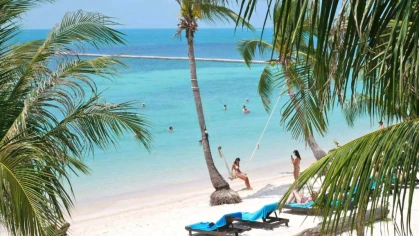
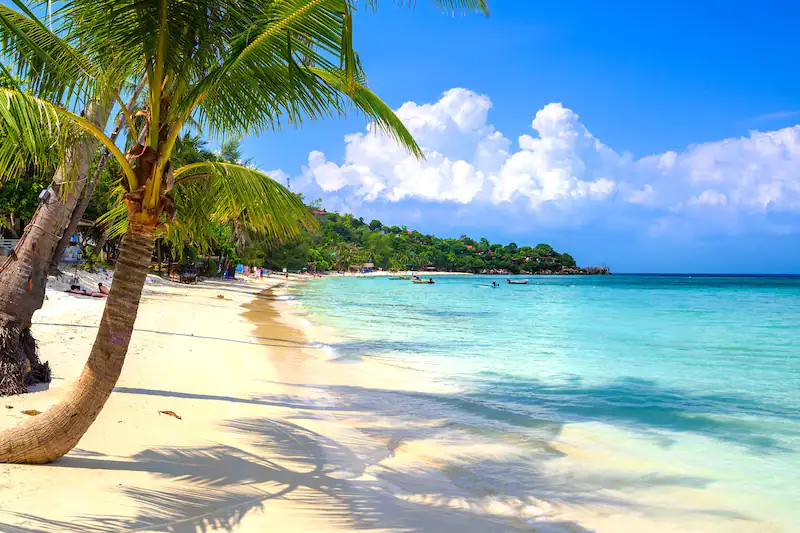
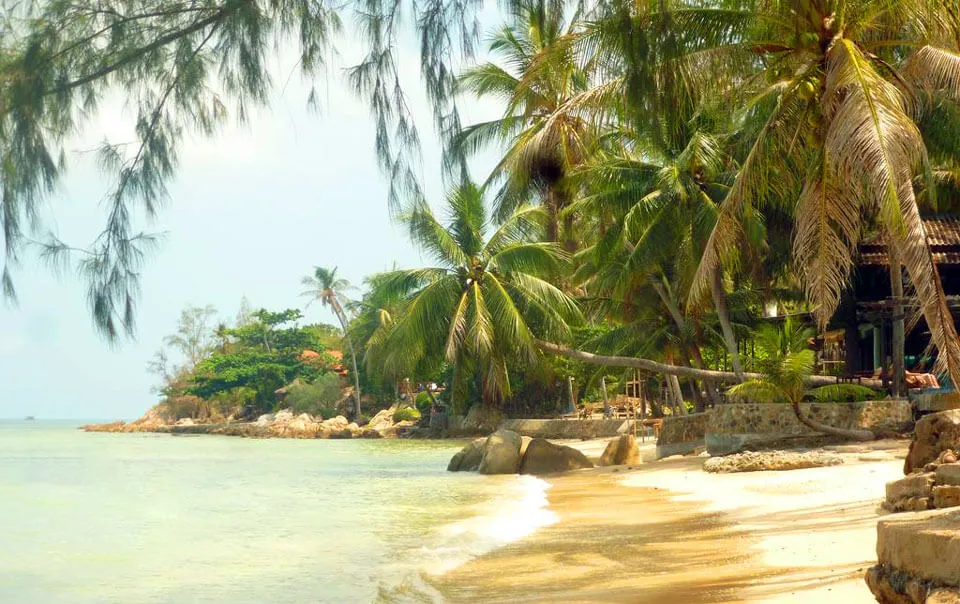
⚠️ Sand Fleas
A small but worth-mentioning downside of Koh
Phangan: some beaches have sand fleas—tiny biting insects that can leave
itchy, persistent marks. While not dangerous, they can definitely disrupt
a relaxing beach day. Because of this, certain stretches of coastline are
quietly placed on the "avoid" list by seasoned expats.
Verdict
- ✅ Koh Phangan is better for swimming, sunbathing, and family-friendly beach days
- 🌊 Bali wins for surfing, dramatic coastlines, and cooler water
- 🐜 Watch out for sand fleas on Koh Phangan—ask locals before choosing a beach
Bureaucracy & Visas
If you're looking to avoid complex visa processes, Thailand
offers a relatively flexible system, especially compared to other countries
in the region.
🛬 Visa-Free Entry ("On Stamp")
Until recently, travelers could stay in Thailand
for up to 45 days without a visa, using the entry stamp issued upon
arrival. After that, many expats would do what’s commonly known as a "border
run" to exit and re-enter the country, gaining another 45 days—all
without needing a visa and free of charge.
Currently, the visa-free stay has been reduced
to 30 days. However, border runs are still allowed, and numerous
companies organize border-crossing tours to help with this process.
For example, from places like Tae, you can
complete the run without flying. A typical group tour in a
comfortable minivan, which includes:
- Border crossing assistance
- Documentation processing
- Liaising with border officers
...will cost around $100. It takes about a
day and is generally cheaper (and less stressful) than flying in and out every
two months.
🧾 Long-Term Visa Options
Thailand also offers several long-term visa
options, including:
- Education visas
- Marriage visas
- Retirement visas
- Business and investment visas
However, obtaining a residence permit (PR)
is much more difficult. Only 100 people per nationality per year
are eligible. These spots are reserved for:
- Investors
- Company executives
- Family members of Thai citizens
- Highly skilled professionals
Applicants must meet strict criteria, such as:
- Fluency in Thai
- Maintaining a valid visa for at least 3 consecutive years
- Meeting income/salary thresholds
- Providing documentation and undergoing interviews
🕐 Staying for 45–90 Days
If you're planning to stay longer than 30 days
but less than three months, you can apply for a Single-Entry Tourist
Visa:
- Valid for 60 days
- Can be extended by an additional 30 days within Thailand
- Allows a total stay of up to 90 days
Summary
- ✅ Visa-free entry: 30 days, renewable via border run
- 💵 Border run: ~$100, no flight required
- 📚 Long-term visas available, but PR is difficult and limited
- 🧳 Tourist visa: 60 + 30-day option available
Bringing Pets to Thailand vs. Bali
When it comes to relocating with pets, Thailand
is significantly more pet-friendly and accessible than Bali.
Bringing a cat or dog to Thailand is
relatively straightforward. All you need is a standard set of documents,
which you can usually prepare on your own, without the need for an
agent. Best of all, no quarantine is required upon arrival, making the
process smoother for both you and your pet.
In contrast, bringing pets to Bali is a much
more complicated and costly endeavor. While it’s possible with enough determination—and
a decent budget—you’ll almost certainly need to go through an import agent,
and finding a reliable one can be challenging. Even with everything in
order, quarantine is mandatory upon arrival in Indonesia.
General Atmosphere
One key difference many expats notice is that Thailand
tends to feel more relaxed when it comes to rules and regulations for
foreigners, especially compared to Bali, where discussions about new
restrictions seem to pop up regularly.
Naturally, common sense and respect for local
culture still apply—you can’t walk around naked or insult locals (though,
interestingly, Koh Phangan does have a few nudist beaches). But overall,
the regulations feel less strict and less aggressively enforced.
There’s no talk of mass deportations or
public crackdowns on illegal remote work—even though, much like in Bali,
plenty of expats do work online or under the radar. The difference is, Thailand
seems to manage these issues more quietly and without dramatic headlines.
To illustrate the contrast: expats in Koh
Phangan likely don’t even know the name of the local governor, while in
Bali, Governor Wayan Koster has become something of a household name
among foreigners—mainly due to his frequent and often controversial public
statements.
Foreign Community & Lifestyle
At first glance, the expat scene on Koh Phangan
feels simpler and more down-to-earth than in places like Canggu.
You won’t find daily networking events, crowds of startup founders,
or villas owned by crypto millionaires. But what you do find is a
closely knit community.
Because the island is small, people tend to know
each other, and the vibe is more intimate. There may not be countless
trendy cafés to meet for breakfast, but the expats here are warm, open, and
creative. You'll often come across art markets, small performances, or
community gatherings organized by locals and foreigners alike.
Work Environment & Connectivity
From personal experience, Koh Phangan doesn’t
naturally foster a “work hard” atmosphere—and it's not just about legalized
marijuana. The overall energy is more relaxed and slow-paced,
which is great for unwinding but less ideal for productivity.
There are very few coworking spaces, and
even though some cafés offer decent Wi-Fi, reliability can be hit or miss. One
day your connection is flying; the next, it might take an hour to upload a 30
MB file.
That said, mobile internet is excellent—5G
coverage is strong across the island. A huge plus in Thailand is that
there are no customs duties on your personal devices and no IMEI
blocking after two months, unlike in Indonesia.
Style & Culture
You won’t see as many fashionistas as you would in
Canggu, but Koh Phangan has its own distinct style. It’s more laid-back,
a little more bohemian, and definitely less curated for Instagram—but that’s
part of its charm.
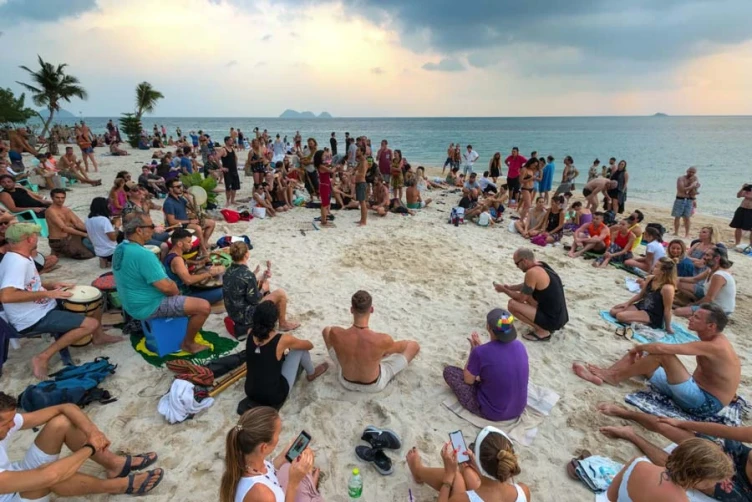
Final Thoughts
In my personal opinion, Koh Phangan is a great
place to spend a month or so—perfect for combining work and rest, or as a
stopover during a longer visa run. But when it comes to choosing a long-term
base, especially in Southeast Asia, Bali still stands out as the best
all-around option.
What makes Bali unbeatable is the sheer diversity
of everything: people, food, experiences, and opportunities.
That said, everyone’s preferences are different—so
if you have another perspective, feel free to share in the comments!
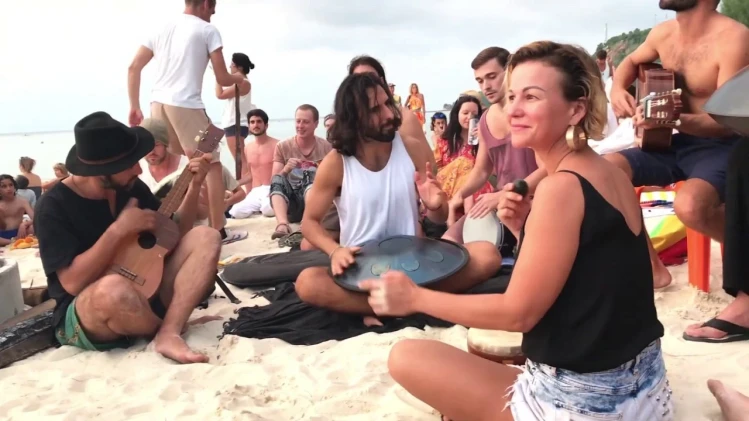
My favorite province is Krabi.
When it comes to the sea, I definitely prefer the Andaman Sea over the Gulf of Siam.
Among the popular tourist resorts/provinces of the Andaman Sea, if we choose between Phuket and Krabi, we prefer Krabi. But one should understand that it is not as developed as Phuket. It's more intimate, with fewer people. However, there are many different places and islands. Stunning nature and cliffs. There's a lot to explore.
Regarding the best beaches and water, for me, it's the islands of Krabi province and Koh Lipe.
However, in Lipe, it was already overcrowded: all in boats, a large crowd of people.
From the group of islands in the Gulf of Siam (Samui, Phangan, Tao), the coolest for us was undoubtedly Tao. It has the best reefs in Thailand. Beautiful. Amazing beaches nearby. Plus, it’s small, intimate, but with a huge number of charming little spots. And a very cool crowd. Phangan is not my thing. Samui, for me, feels more like an urban version of an island. Too many people. And it's big. It doesn't particularly appeal to me. But it's comfortable there.
Bangkok is an amazing metropolis. There are many attractions, beautiful places, both modern and historical structures. Delicious food. Very good shopping.
From all the places we visited in Thailand, I'd say that the only one I absolutely didn't like was Pattaya; it's not my place, I don’t understand it.
The most important introduction: you are reading a text by someone who loves Bali and Phuket. It's just that this love is different. And overall, I find the debate about which is better somewhat immature
I mentioned my love for these places to show that I'm objective, with no bias towards either
A few years ago, I flew to Bali, having lived in Phuket for several months before that. I was grumbling: 'How do people live here? Get back quickly, quickly'
I was a fool. Judged superficially, grabbed answers from the 'top shelf.' When I came back the second time to give it a chance, I was absolutely happy
Now I'm in Bali for the 4th or 5th time. Every day I smile, thank this island for everything, and find it absolutely amazing. I recently wrote to a friend: 'If you haven't been to Bali, you haven't lived'
I won't say the same about Thailand. Despite my love for it)
Bali – is energy. Something enveloping, cozy. You feel like the world loves you here, you feel it in your skin. I can ride a bike in Bali and just smile
Bali – is beautiful. Beautiful nature, beautiful interiors, exteriors. Balinese have an excellent sense of taste. And those scents – you ride through the streets during ceremonies and not only – the smell of plants mixed with incense sticks is beyond words
The architecture, the crazy, mysterious charm of the island – incomparable to anything. I’m more rational than crazy, but nonetheless, I admit that Bali is special. I have a tender feeling towards it, with a sense of wonder. To my closest people, from the two options, I would wish for them to visit Bali, not Phuket. Can one go a lifetime without seeing Phuket? Yes
Can you go a lifetime without visiting Bali? I beg you, no, you can't. My mom has been to Bali but not Phuket. And I'm calm) if it were the other way around, I would be upset
Bali – is amazing. Bali – is love ❤️
Phuket – is for long-term living. Yes, it doesn't have that vibe. But it's more rational, down-to-earth (not in a negative context). The devil is in the details. Our life consists of many rituals and seemingly insignificant things. But they make up everyday life
In Phuket, I don't sit in traffic jams. There are good malls there, it's tastier (really, don't argue)
In Phuket, there is more sense of security, it’s hard to digitize, you feel it on an energetic level. Phuket is cozier, somewhat simpler and clearer. Phuket is more civilized (when it comes to everyday things, from laundries on every corner to 24-hour 7/11 stores selling everything, not just oil and dog food like in Indomaret)
I wake up in Phuket feeling at home. All daily life: shops, restaurants, medicine (the list goes on forever) – is much more convenient than in Bali
Which is better – Phuket or Bali?
Neither. Rather, both
Depending on your request, time, worldview
I feel deeply nostalgic without Bali. It's great
Is it better than Phuket? No. Just different
Thanks for your attention)